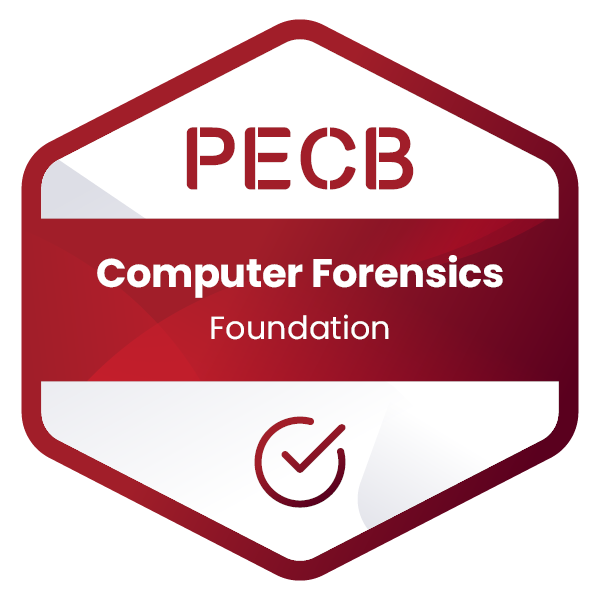Course Overview
The PECB Computer Forensics Foundation course is designed to introduce participants to the essential principles, methodologies, and best practices of computer forensics. This training provides a solid understanding of how to identify, collect, preserve, analyse, and present digital evidence in a secure and legally compliant manner.
Participants will explore the lifecycle of digital investigations, including forensic readiness, incident response, evidence acquisition, and reporting. The course equips learners with the foundational knowledge to support investigations, mitigate risks, and ensure the integrity of digital evidence in a professional environment. It is ideal for IT professionals, security officers, legal advisors, auditors, and anyone interested in the growing field of computer forensics.
Upon completion, participants will be able to apply computer forensic principles to real-world scenarios, contributing to organisational security, compliance, and incident investigation efforts.
Why should you attend?
Learning Objectives
- Understand the basic concepts of Computer Forensics
- Understand the basic processes of Computer Forensics
- Understand the approaches, method,s and techniques used to effectively manage Computer Forensics Processes
Educational approach
- Lecture sessions are illustrated with practical questions and examples
- Practical exercises include examples and discussions
- Practice tests are similar to the Certificate Exam
Prerequisites
None
Target Audiance
- Individuals interested in Computer Forensics Processes
- Individuals seeking to gain knowledge about the main processes of Computer Forensics
- Individuals interested to pursue a career in Computer Forensics



 4.9
4.9